How could we describe the event that took place on the 12th of July at Salonul de Proiecte? Was it a performance, a sonorous poetry session, an improvisation in the lines of lettrism or situationists – of Hurlements en faveur de Sade by Debord or the breath-poems of Wolfman? Or perhaps an experiment of speaking in tongues, Glossolalia type, as suggested by Anticorp Solar, one of the participants? For everyone in the room, performers and spectators alike, the “feral choir” led by British artist Phil Minton (whose long career includes collaborations with musicians Audrey Chen, Tom Cora, Radu Malfatti, Mike Westbrook or the Five Men Who Sing improvisation quintet) implied a transfer of pure energy, a direct interrelation, communication beyond language, concepts, a possible re-connection to that prime reservoir of art to which modern, civilized, domestic man has ceased to have access to.
We find that the show was the result of an improvisation workshop initiated by ODD for “those who always wanted to sing but were to afraid to do it”. If you ask me, the key word here is precisely this fear, the productive state of not being home, as Freud or Heidegger theorized. If Minton’s practice can be placed in a territory of confluence between music and catharsis and witchcraft then the point of inflection constitutes precisely this effect. Fear, or rather otherness is something that anyone who will come into contact with the performance for the first time, without preparation or direct access, will feel. I, myself, have noticed the unease of some of my friends who hastily and randomly listened to a recording. In turn, Phill Minton amusingly recalls (in an interview by Andra Chițimuș, the curator of the event) a story involving some neighbors who, after hearing some of his noises in the distance, called the police.
Conversely, those who participate without holding back, all the way, mustering uncensored corporeal sounds, whistling, howling, taking a cozy seat in the warm zone of authenticity will experience complete detachment from any kind of fear. During this phase, the choir seems to be making up a machine for driving fears away. The public and participants alike, everyone in the rooms ceased feeling threatened. Sooner or later they start to smile, they commit. Could this be the same archaic mechanism for the sacred, for the ritual?
I would say that the sixteen participants (Cosmina Moroșan, Petre Fall, Elena Dobre, Cristina Bogdan, Ioana Gheorghiu, Maria Mora, Bogdan Bălan, Alina Tofan, Paul Dunca, Cristiana Tăutu, Anticorp Solar, Ioana Răileanu, Anamaria Pravicencu, Cristian Fierbințeanu, Laurențiu Coțac, Andra Chițimuș) hold a double status which is contradictory – they are instruments orchestrated by Phil Minton and unleashed forces of nature all at once. What would the conductor’s position be in this case? I’d place him under the label of shaman, between Beuys the coyote tamer, an activist but also an experimental musician (see his collaboration with Henning Christiansen: Schottische Symphonie / Requiem of Art) and another master of catharsis and transgression, Ghédalia Tazartès, a nomad among the dance, theater, music and authentic rhythm scenes, a promoter of impromuz, his own made up language centered around the expressiveness of one’s voice.
The ease with which Minton slides between the world of dance and experimental music and the world of visual arts is similar to how artists like Ghédalia Tazartès are known as sonorous painters, poets of sound which make the case for a new paradigm of interdisciplinary and intermedia where visual art, poetry, theater, music and dance abandon their own languages, their modernist approach, and reconnect to the unique fuel of the moment, of authenticity, of direct contact. In this sense, the choir constitutes a transgressive act par excellence, a rediscovery of the body, a detachment from the world of proscriptions and ideologies.
For a moment, tedious everyday pauses, allowing you to simply be happy. The huge smile on Cristina Bogdan, ODD editor and coordinator’s face can only be challenged by they yells of Andra Chițimuș și Cristiana Tăutu or the whistling students who miraculously seem to have renounced all “heater-isms”. At the end of the show Anticorp Solar confesses that he just lived one of his childhood dreams of triumphantly stepping on stage, being cheered on and in the center of attention, just as when he used to be a drummer. Bogdan Bălan, the art history student who resembles Harry Potter recalls that the Englishman’s wand made him feel excited and safe at the same time, the same way only a prestigious institution like Hogwarts School of Witchcraft and Wizardry would make you feel. This magical state the participants are in is what made Minton resume his long-term performance and place it in so many new contexts.
The way in which the shaman-conductor continues his practice for over 20 years, working the magnetic chain of enthusiasm next to artists and activists from the world’s cultural scenes, children, Muslim women, old people isolated in nursing homes, prison convicts, alcoholics, homeless people, autistic people or the disabled demonstrates another role of the “feral choir”, that of social link, a generator for authentic relationships. As Andra Chițimuș (the one who invited Minton to Romania after she took part in one of his performances in Parisian festival Sonic Protest) put it: we are dealing with a raw, primary system of communication, a wild symphony of corporeal sounds which involves whistling combined with murmurs, moaning, breathing, non-articulated screaming. We recognize an example of relational art from Bourriaud’s list, a way of rebuilding human relations in a spectacle society subjected to functional standardization and globalization.
Phil Minton’s Feral Choir, part of the series ODD NIGHTS, was at Salonul de Proiecte on July 12, 2017. You can listen to the recording of the final performance here.
POSTED BY
Raluca Oancea
Raluca Oancea (Nestor), member of International Association of Art Critics (AICA) and European Network for Cinema and Media Studies (NECS), is a lecturer at The National University of Arts in Buchares...
www.Dplatform.ro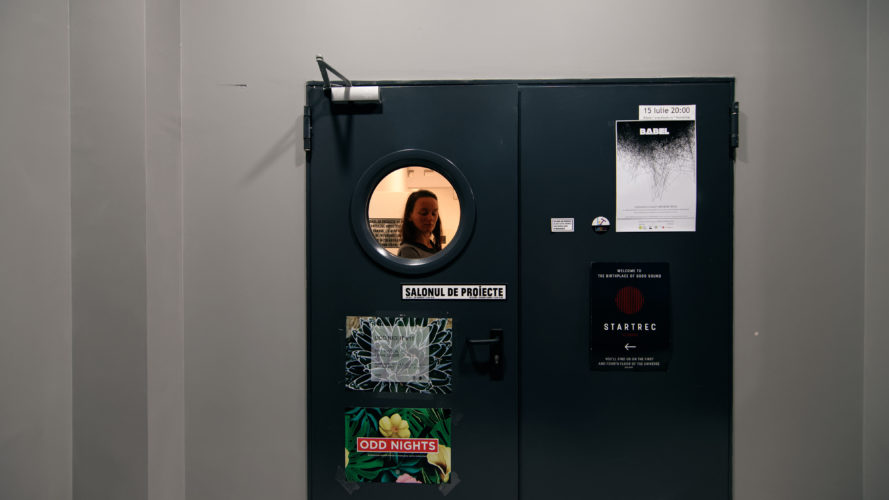
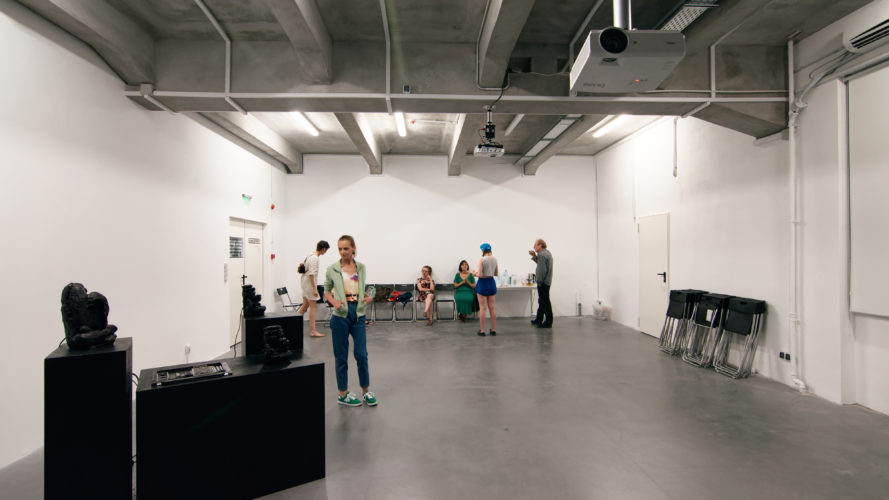
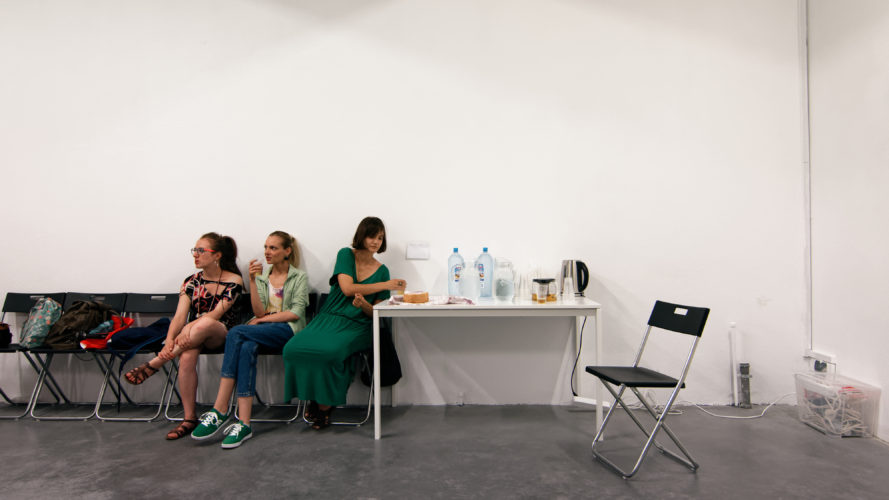
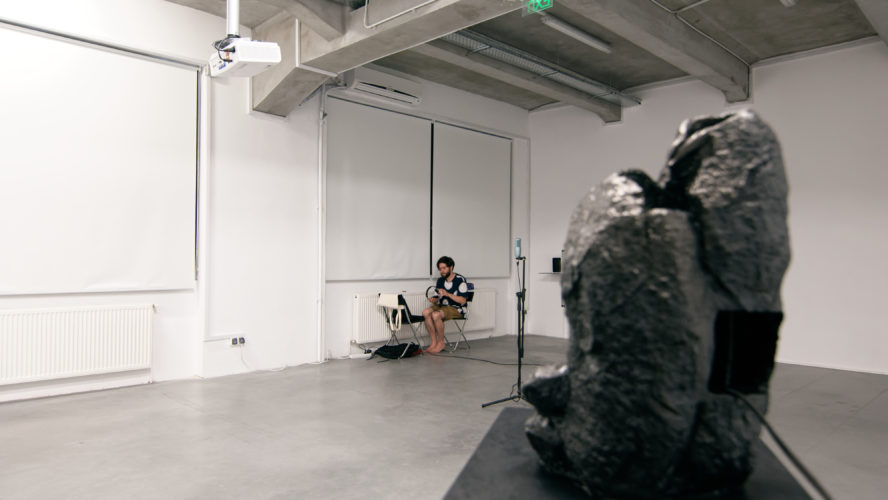
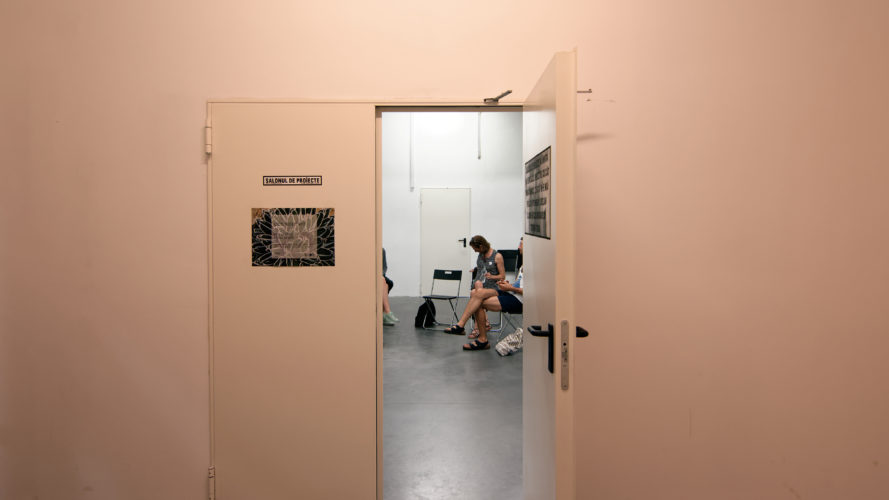
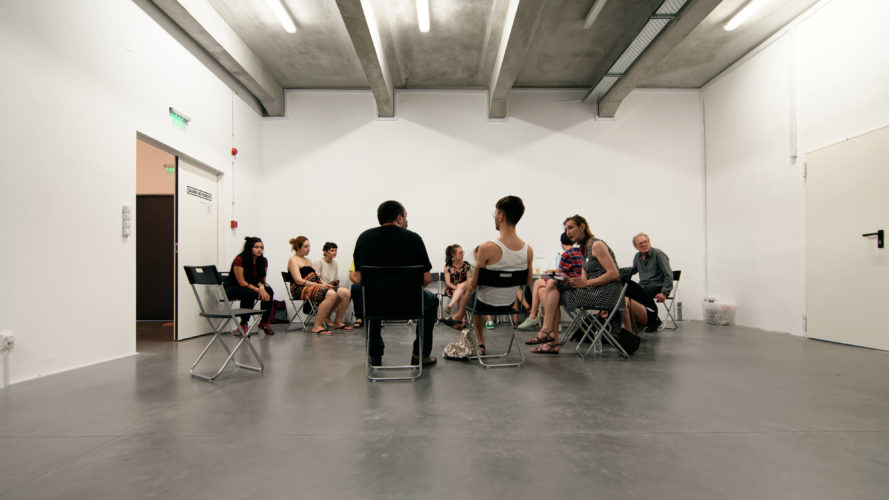
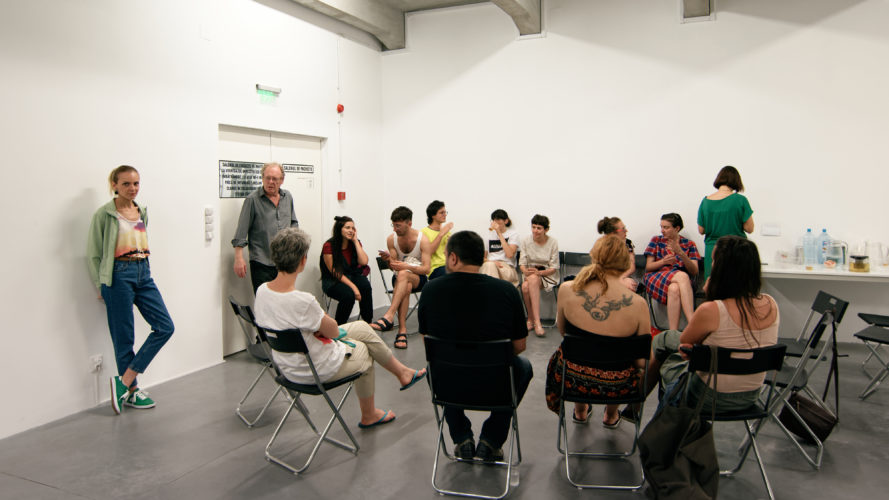
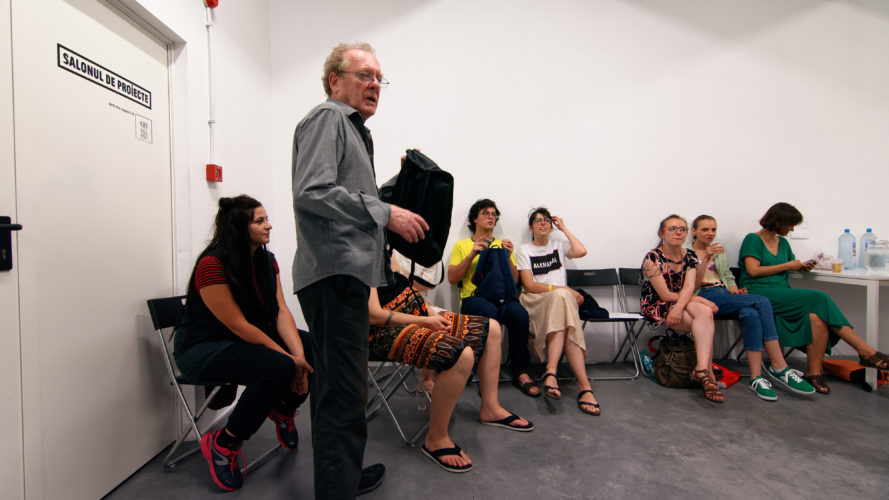
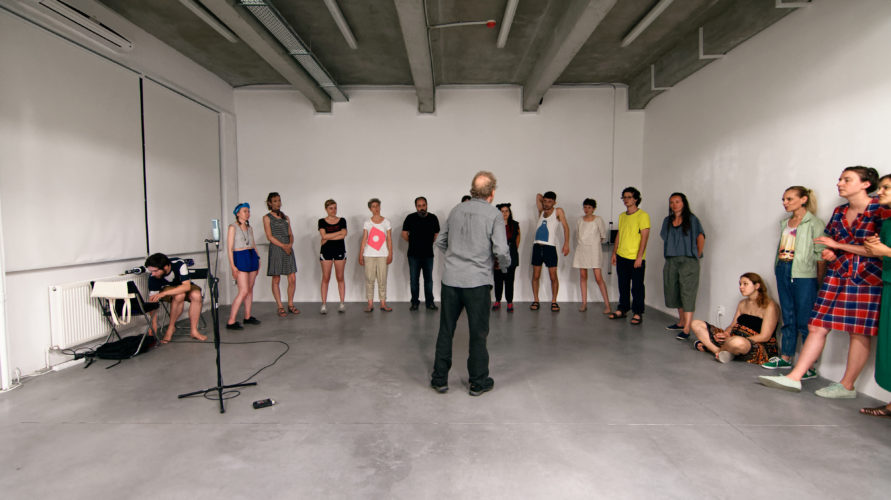
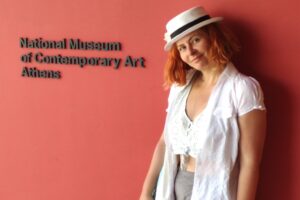
Comments are closed here.